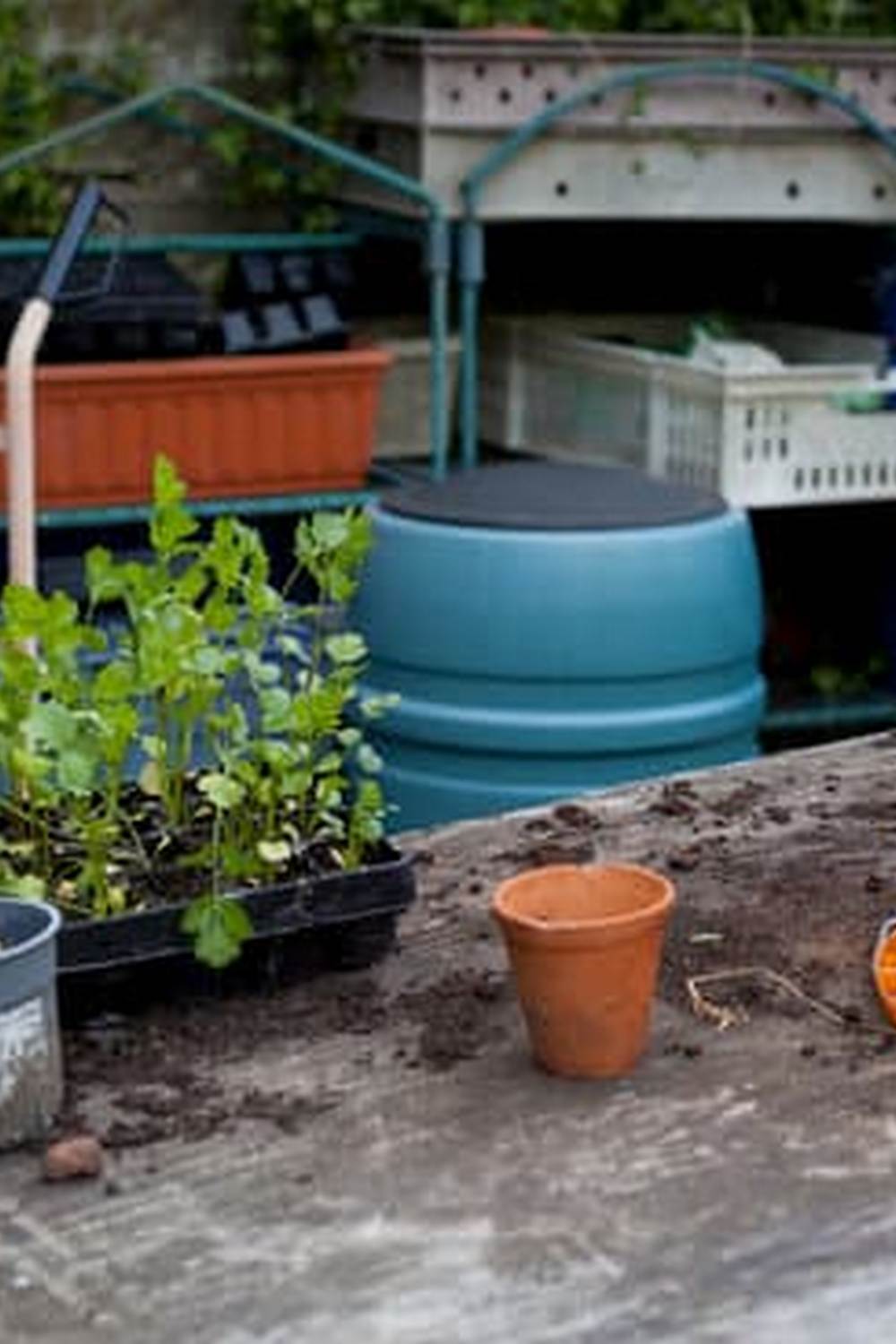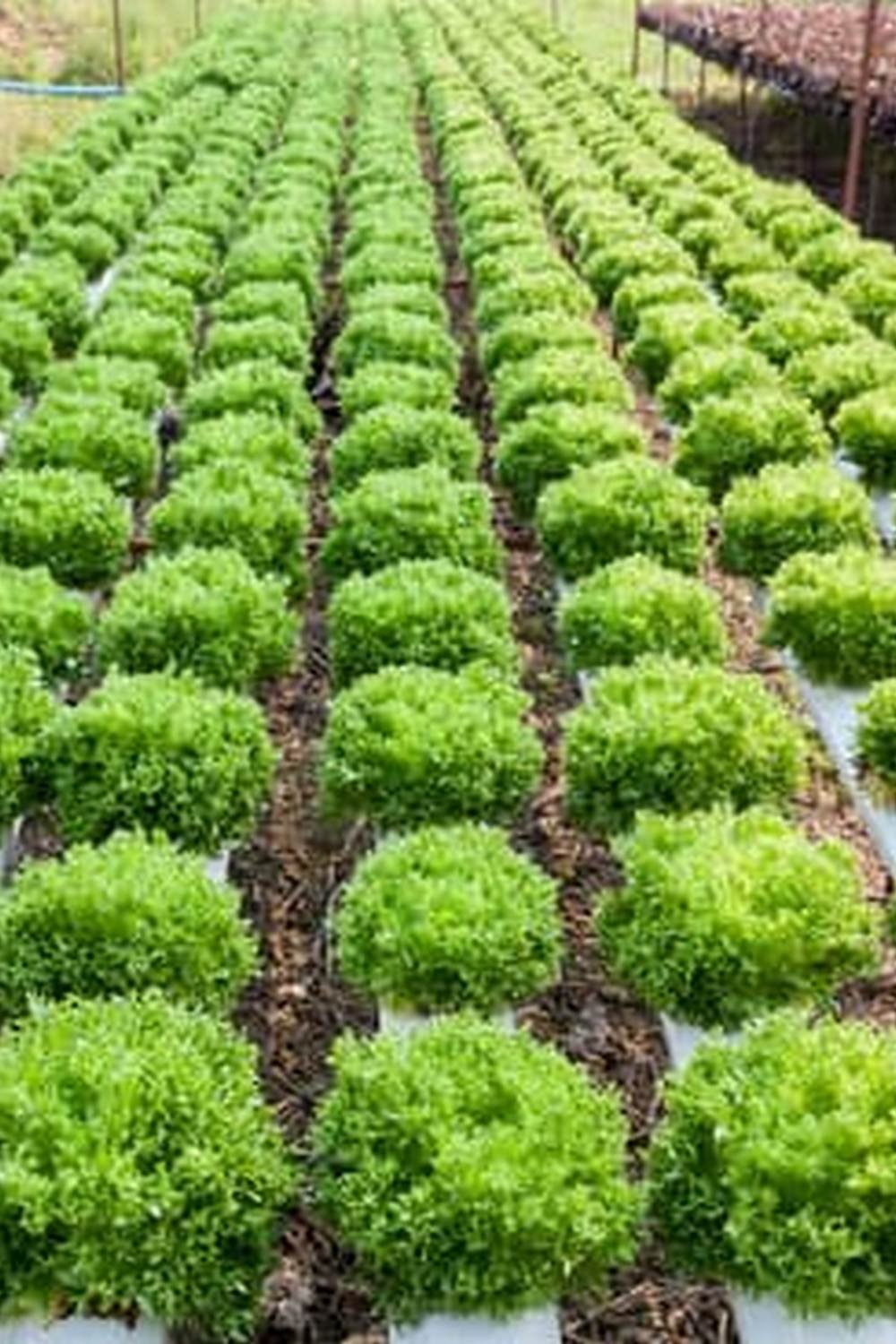When it comes to maintaining a thriving vegetable garden, dealing with pesky bugs can be a major challenge. However, instead of resorting to chemical-filled pesticides, many gardeners are turning to natural pest control methods using plants to deter bugs from vegetable gardens. Not only are these methods safer for the environment and your health, but they can also enhance the overall health and flavor of your crops.
By incorporating bug-repelling plants into your vegetable garden, you can effectively ward off common pests that pose a threat to your precious produce. These natural defenses not only help protect your plants from damage but also promote biodiversity and balance in the garden ecosystem. From marigolds to lavender and basil, there are various plant options known for their bug-repelling properties that can be easily incorporated into your garden layout.
Furthermore, utilizing companion planting techniques can strategically place certain bug-repelling plants near susceptible vegetables to create a natural barrier against pests. This symbiotic relationship between plants not only deters bugs but also adds aesthetic appeal and diversity to your garden. In the following sections, we will delve deeper into the specific benefits of these bug-repelling plants and explore additional strategies for maintaining a pest-free vegetable garden without harmful chemicals.
Common Bugs That Pose a Threat to Vegetable Gardens and the Damage They Cause
When it comes to maintaining a thriving vegetable garden, it’s essential to be aware of common bugs that can pose a threat to your precious plants. These pests can cause significant damage to your crops if left unchecked, leading to decreased yields and overall poor plant health. By understanding which bugs are prevalent in your area and the damage they can cause, you can take proactive measures to protect your vegetable garden.
Here are some of the most common bugs that you may encounter in your vegetable garden:
- Aphids: These tiny insects feed on plant sap, causing leaves to curl, yellow, and wilt. They reproduce quickly, making them a common pest in vegetable gardens.
- Cabbage worms: The larvae of cabbage butterflies, these pests feed on cabbage-family crops like broccoli and cauliflower, leaving behind holes in the leaves and damaging the plant’s overall growth.
- Tomato hornworms: These large caterpillars can devour tomato plants quickly, causing defoliation and fruit damage if left untreated.
To combat these pests and protect your vegetable garden, consider planting bug-repelling plants strategically throughout your garden bed. Marigolds, lavender, basil, and other herbs not only add beauty and flavor but also act as natural deterrents for unwanted bugs. Additionally, practicing companion planting by pairing certain plants together can help repel bugs while promoting healthy growth for your vegetables. By being proactive in deterring pests naturally, you can ensure a bountiful harvest from your vegetable garden.
Plants That Repel Bugs Naturally
Marigolds, lavender, and basil are not only beautiful additions to any garden, but they also serve as natural bug deterrents for your vegetable garden. These plants have been known for their ability to repel pests such as aphids, beetles, and mosquitoes, thereby reducing the need for harmful chemical pesticides. Here are some reasons why incorporating these plants into your garden can benefit both your crops and the environment:
- Marigolds: These vibrant flowers not only add a pop of color to your garden but also emit a scent that repels nematodes, whiteflies, and other insects that can damage your vegetables. Planting marigolds around the perimeter of your vegetable patch can create a natural barrier against invading bugs.
- Lavender: Known for its soothing fragrance and medicinal properties, lavender is also a powerful insect repellent. The strong aroma of lavender plants can deter mosquitoes, moths, fleas, and flies from infesting your vegetable garden. Consider planting lavender near tomatoes or cabbage to protect them from destructive pests.
- Basil: Aside from being a versatile herb used in cooking, basil also has insect-repelling properties that make it a valuable addition to any vegetable garden. Planting basil alongside tomatoes, peppers, or eggplants can help ward off spider mites, aphids, and hornworms that commonly attack these crops.
By strategically planting marigolds, lavender, and basil throughout your vegetable garden or in pots near susceptible plants, you can effectively create a natural barrier against common pests without the use of harmful chemicals. These bug-repelling plants not only help protect your crops from damage but also attract beneficial insects like bees and butterflies that aid in pollination. Incorporating these natural pest control methods into your gardening practices promotes a healthier ecosystem while ensuring a bountiful harvest of fresh produce.
Companion Planting
One effective way to use companion planting for pest control is by integrating plants that bugs find unappealing or confusing. For example, strong-smelling herbs like basil and lavender not only add fragrance and flavor to your dishes but also repel insects like mosquitoes, flies, and beetles.
Marigolds are another excellent choice as they release a scent that deters nematodes, aphids, and other destructive pests. By strategically placing these bug-repelling plants throughout your vegetable garden, you can help protect your crops from harm.
Additionally, certain plants attract beneficial insects that prey on common garden pests. For instance, planting dill or fennel can attract ladybugs and lacewings – both of which feed on aphids and caterpillars.
Similarly, planting flowers like sunflowers or cosmos can draw in pollinators such as bees and butterflies while also providing shelter for predator insects like spiders that feast on unwanted bugs. Overall, companion planting offers a holistic approach to pest control by creating a balanced ecosystem where good bugs keep the bad bugs in check.
| Beneficial Plants | Pests Repelled |
|---|---|
| Marigolds | Nematodes, aphids |
| Lavender | Mosquitoes, flies |
| Basil | Beetles |
Herbs That Double as Bug Repellents and Add Flavor to Your Dishes
Herbs like mint, rosemary, and thyme not only add flavor to your dishes but also act as natural bug repellents in your vegetable garden. Mint, for example, is known for its ability to deter ants, aphids, and rodents due to its strong scent.
Rosemary can help keep mosquitoes and carrot flies at bay, while thyme is effective against cabbage worms and whiteflies. By incorporating these herbs into your garden, you not only enhance the taste of your home-cooked meals but also provide a natural defense against unwanted pests.
In addition to their bug-repelling properties, these herbs are easy to grow and maintain in a garden setting. They require minimal care and attention, making them ideal choices for both beginner and experienced gardeners alike. Plus, having fresh herbs readily available just outside your door can elevate the taste of any dish you prepare with their aromatic and flavorful leaves.
Furthermore, planting these bug-deterring herbs alongside your vegetables can create a symbiotic relationship that benefits both plants. This practice, known as companion planting, can not only help repel bugs from attacking your vegetables but also attract beneficial insects that aid in pollination and pest control. By strategically placing mint, rosemary, and thyme throughout your garden beds, you can create a harmonious ecosystem that promotes plant health and reduces the need for harmful chemical insecticides.
| Herb | Pest Repelled |
|---|---|
| Mint | Ants, Aphids, Rodents |
| Rosemary | Mosquitoes, Carrot Flies |
| Thyme | Cabbage Worms, Whiteflies |
Creating a Bug-Repelling Garden Bed
When it comes to deterring bugs from your vegetable garden, the layout of your garden can make a big difference. By strategically planning and designing your garden bed, you can maximize pest control and create a thriving environment for your vegetables. Here are some tips on how to layout your garden for maximum pest control:
Positioning Bug-Repelling Plants
One way to naturally deter bugs from your vegetable garden is by strategically placing bug-repelling plants throughout the bed. Consider planting marigolds, lavender, basil, and other insect-repelling herbs around the perimeter of your garden or in between rows of vegetables. These plants not only add beauty and fragrance to your garden but also help keep destructive bugs at bay.
Implementing Companion Planting
Companion planting is another effective technique for pest control in vegetable gardens. By selecting companion plants that complement each other’s growth patterns and properties, you can create a natural defense system against pests. For example, planting onions alongside carrots can help deter carrot flies, while growing nasturtiums near squash plants can repel squash bugs.
Creating Diverse Habitats
In addition to positioning bug-repelling plants strategically, consider creating diverse habitats within your garden bed. By including a variety of plants with different heights, textures, and colors, you can attract beneficial insects like ladybugs and lacewings that prey on harmful bugs. Incorporating flowering plants and herbs that attract pollinators also helps maintain a healthy ecosystem in your garden.
DIY Bug Spray Recipes Using Essential Oils From Bug-Repelling Plants
Using Essential Oils in Bug Repellent Sprays
One of the most effective ways to keep bugs at bay in your vegetable garden is by creating your own bug spray using essential oils from bug-repelling plants. Essential oils have been used for centuries for their natural insect-repelling properties, making them a safe and eco-friendly option for controlling pests.
Some popular essential oils that are known to deter bugs include lavender, citronella, peppermint, and eucalyptus. By combining these oils with other ingredients, you can create a potent bug spray that will keep unwanted visitors away from your vegetables.
DIY Bug Spray Recipe
To make your own bug spray using essential oils, start by mixing 10-15 drops of each of your chosen essential oils with 1 cup of water and 1 tablespoon of witch hazel or vodka (to help the oil disperse evenly). You can also add a few drops of dish soap to help the mixture stick to plant leaves better.
Pour the mixture into a spray bottle and shake well before use. Be sure to reapply the bug spray after rainfall or every few days for maximum effectiveness.
Other Pest-Repelling Alternatives
In addition to using essential oil-based bug sprays, there are other natural alternatives you can try to keep bugs away from your vegetable garden. Planting certain herbs like rosemary, thyme, and chives near your vegetables can act as a natural deterrent against pests.
You can also sprinkle diatomaceous earth around the base of plants to create a barrier that insects cannot penetrate. Experiment with different methods until you find the best solution that works for your garden’s unique pest problems.
Maintenance Tips to Keep Bugs Away From Your Vegetable Garden Long-Term
In conclusion, maintaining a healthy and thriving vegetable garden requires more than just planting the right vegetables and using natural pest control methods. Regular weeding and composting practices play a crucial role in keeping bugs away long-term. Weeds not only compete with your vegetables for nutrients but also serve as hiding spots for pests. Therefore, consistent weeding is essential to prevent bugs from taking over your garden.
Composting is another key aspect of maintaining a bug-free vegetable garden. By adding nutrient-rich compost to your soil, you can promote healthy plant growth and make your vegetables more resistant to pests. Additionally, compost attracts beneficial insects that prey on harmful bugs, further helping to keep your garden free from infestations.
Incorporating these maintenance tips into your gardening routine, along with using bug-repelling plants and strategic companion planting techniques, will create a sustainable ecosystem in your vegetable garden that naturally deters bugs. By taking a holistic approach to pest control, you can enjoy a bountiful harvest of fresh vegetables without the need for harmful chemicals.
So next time you’re planning your garden layout or tending to your plants, remember the importance of regular weeding and composting practices in keeping bugs at bay.
Frequently Asked Questions
What Can I Use to Keep Bugs Off My Vegetable Garden?
To keep bugs off your vegetable garden, you can use a variety of natural methods. One popular option is to plant companion plants that repel insects, such as marigolds, mint, or chrysanthemums. Additionally, you can make homemade insecticidal sprays using ingredients like garlic, chili peppers, or neem oil.
What Plant Keeps Bugs Out of Garden?
There are several plants that are known for their ability to repel bugs from the garden. For example, basil is not only a delicious herb but also acts as a natural insect repellent. Other plants like lavender, rosemary, and dill also have insect-repelling properties that can help protect your garden from pests.
What Flowers Keep Pests Away From Vegetables?
Planting certain flowers in and around your vegetable garden can help keep pests at bay. For instance, nasturtiums not only add a pop of color to your garden but also deter aphids and squash bugs. Other flowers like marigolds, petunias, and sunflowers can attract beneficial insects that prey on common garden pests like aphids and caterpillars.

If you’re looking to get into vegetable gardening, or are just looking for some tips on how to make your current garden better, then you’ve come to the right place! My name is Ethel and I have been gardening for years. In this blog, I’m going to share with you some of my best tips on how to create a successful vegetable garden.





